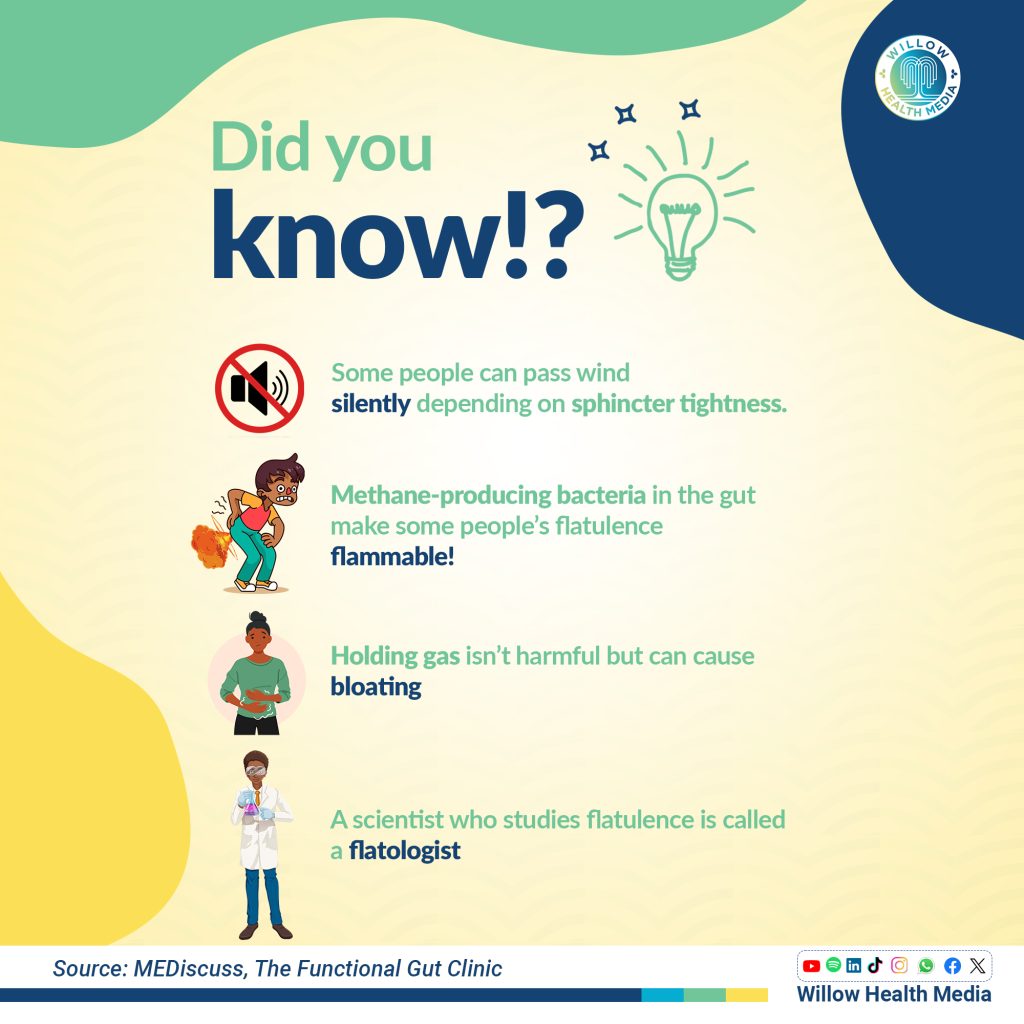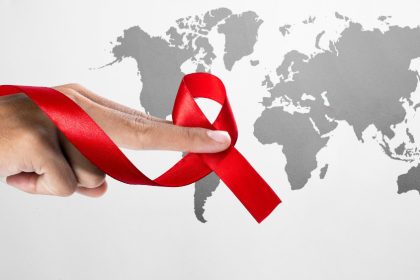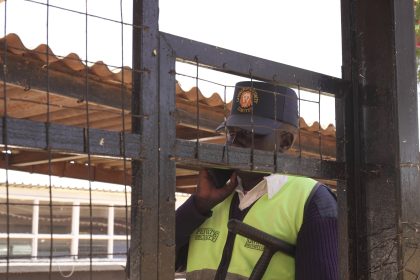Inability to fart, excessive bloating, constipation and feeling like the abdomen is swollen could be a sign of colon cancer- Dr Lilian Musyoka
Like many Kenyans, Erastus Mulwa from Machakos County can only fart far from people. He has to be a ‘nostril away’ because of childhood conditioning that it was taboo to pass gas in front of other people-especially visitors.
“I usually get gassy when I overeat chapati with beans or boiled eggs and have to excuse myself to fart outside,” says the communications professional. “Even when I am alone, it is sometimes embarrassing thinking someone may overhear me doing it.”
Mulwa resorts to suppressing the fart, hoping the gassy feeling will ease. When push comes to shove, he takes Eno or water regularly, although most times the gassiness happens on the days he overindulgences in foods that expose him to flatulence.
Unlike men, women have traditionally been held on a higher social pedestal with farting publicly or even loudly being a no-no.
Judith Mbula, a nanny from Makueni, says she feels uncomfortable farting whether alone or even in-house toilet. She prefers the lonely comfort of a pit latrine away from the main house to release her ‘scuds’ in peace.
But did you know it’s perfectly normal to fart up to 15 times a day with or without your knowledge?
Mulwa’s job often involves workshops starring meals every two hours. The meat and wheat products served get him bloated at the end of the day.
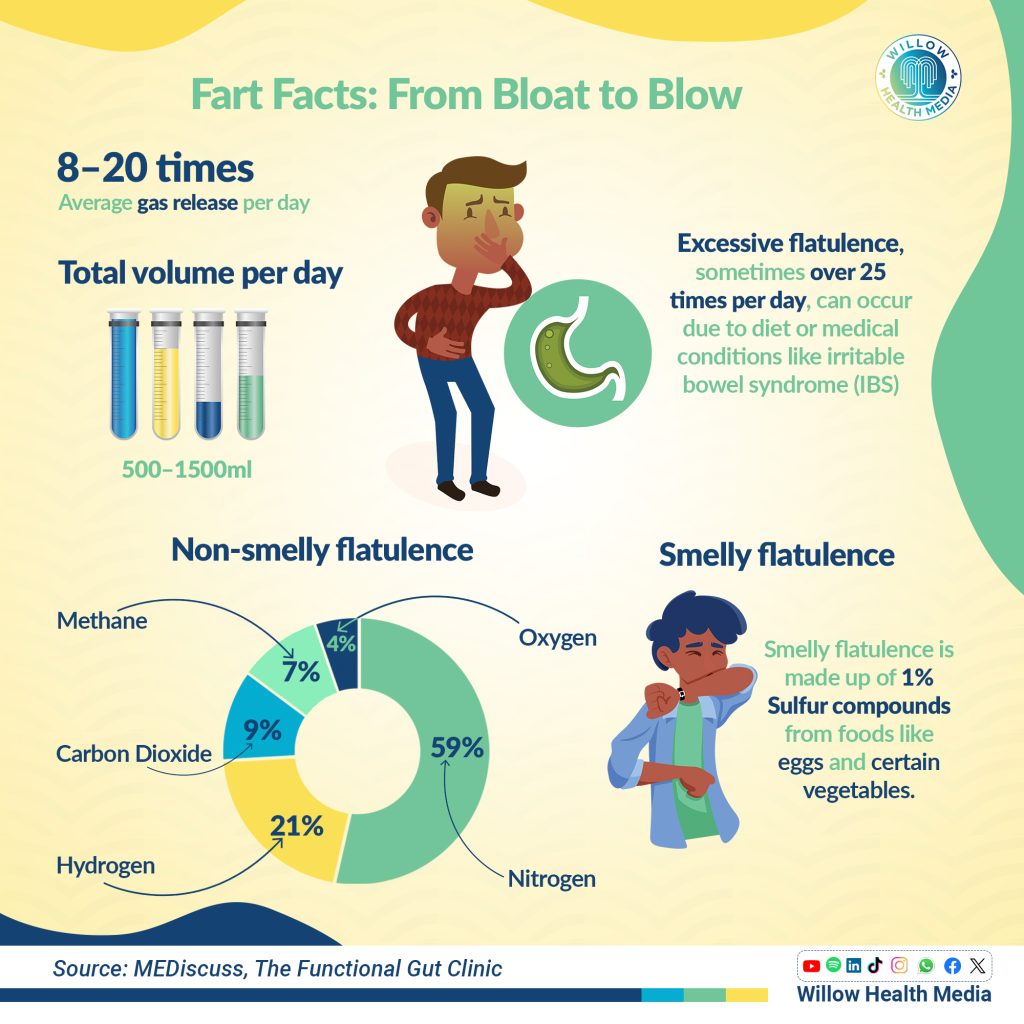
Dr Lilian Musyoka, a consultant physician at Machakos Level 5 Hospital, says flatulence is farting, passing or releasing gas from the digestive system through the anus, while flatulence retention is holding it in.
While flatulence retention, done occasionally, does not cause problems, suppressing farts can increase digestive symptoms, causing more discomfort.
Flatulence can be caused by swallowing air while eating, drinking or swallowing saliva. This air is collected in the digestive system and needs release via burping or farting.
Dr Musyoka lists vegetables, wheat, oats, beans and lentils, dairy products, bread and carbonated drinks as gas-inducing foods.
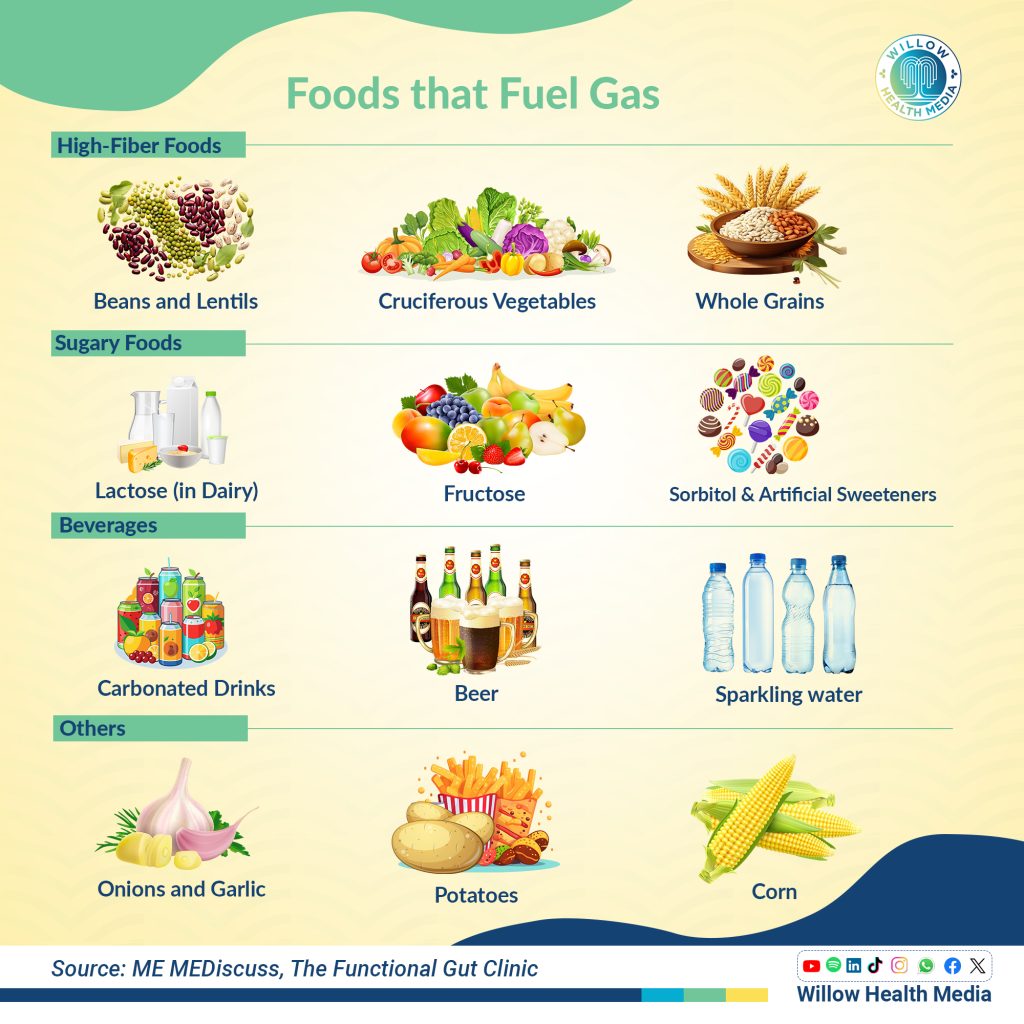
During digestion, the body produces gas as a by-product of the stomach acid neutralizing pancreatic secretions creating carbon gas. Also, bacteria in the colon may ferment carbohydrates that are not digested in the small intestines, producing gas.
Constipation- which means stool has not been passed for more than three days or is rock dry, may also cause flatulence- as food remains longer in the colon, giving it more time to ferment.
“With flatulence retention, you may be passing gas but still have more gas in your stomach,” explains Dr Musyoka. “When your stomach is rumbling, it is your intestines trying to push the gas and food through which happens more when you have excessive gas in the abdomen as it is much harder to pass it than normal food.”

According to Dr Musyoka, some blockages can happen when the intestines twist around, when you have had surgery and from adhesions that form around the intestines or when there is a blockage due to cancer.
She also adds that abdominal adhesions are scar-like tissue bands that can form between organs or the abdominal wall. These bands can twist, kink, pull or compress the intestines leading to a small bowel obstruction.
Dr Musyoka says if one is unable to pass gas under these circumstances, then the intestines might swell resulting in the inability to pass stool, calling for a surgical emergency.
Another surgical condition from flatulence retention is diverticulitis, which is an irregular bulging pouch in the colon wall, and when it becomes inflamed, it may cause a certain degree of intestinal obstruction.
Dr Musyoka explains that one may have flatulence as a symptom of irritable bowel syndrome (IBS) but not everyone with flatulence has irritable bowel syndrome- which is a functional intestinal disorder sometimes present with chronic constipation, chronic flatulence and diarrhoea with symptoms varying in predominance.
To diagnose such conditions, a physician will use the Rome criteria – a set used to classify disorders of gut-brain interaction including abdominal pain, functional constipation and irritable bowel syndrome.
Dr Musyoka also clarifies that flatulence retention will not lead to colon cancer; but it is one of the symptoms of colon cancer.
“Normal bowel behaviour is that you will pass gas normally, at least once every three days, but people with colon cancer may have constipation, and thus unable to pass stool for a few days, and feel like their abdomen is swollen and have bloating,” she explains.
Further, she explains that excessive gas is hard to pass through the intestines compared to normal food, and as the intestines try pushing the gas and other foods, it may result in cramping.
Food with excessive fibre increases gas production causing bloating and excess gas in the gut.

Did you know you can be forced to expel excess gas through the mouth? Dr Musyoka says people do it by belching or burping through the mouth and “It smells depending on what one ate, and since it has stayed in the stomach for some time, it will smell bad.”
Kikuyus call burping Kweruka and Kambas call it Kweluka and traditionally, according to Mary Kitheka, a 68-year-old woman in Machakos, one was usually advised to take a lot of water to ease the gas.
A harsher variation was ‘Sulphur burping’ characterised by a smell akin to rotten eggs. The Kikuyus call it Guthebea and Kambas Kuvevea for which Kitheka says victims were advised to “lick ash which was believed to neutralize acidity in the stomach which was causing the bad smell.”
Kepha Nyanumba, a nutritionist, explains that the chances of excess gas increase when the digestion process goes down because the food takes longer in the stomach.
He suggests making dietary adjustments. One is by reducing foods that take longer to digest like wheat products, red meat and other proteins “especially because it is the holiday season” when people overeat in one sitting, compromising the digestion process and leading to excess gas production.
Kepha says though water plays a key role in the digestive system it should be taken at least 20 minutes before or after meals and not with the meals.
Also, one should take fruits before meals but not after because taking them after could increase gas production.
The nutritionist advises that beans be soaked before cooking to get rid of the gas and boiled with a carrot that should be discarded after boiling as it attracts the component that causes gas in beans.
According to Dr Musyoka, people with persistent flatulence should seek medical intervention, to make sure they do not have a more serious condition like irritable bowel syndrome, small intestine bacterial overgrowth, or just a sign of colon cancer.
There are medical solutions like prescription medicines that contain simethicone, a surfactant that will make the air bubbles attach to each other allowing gas to exit the body.
